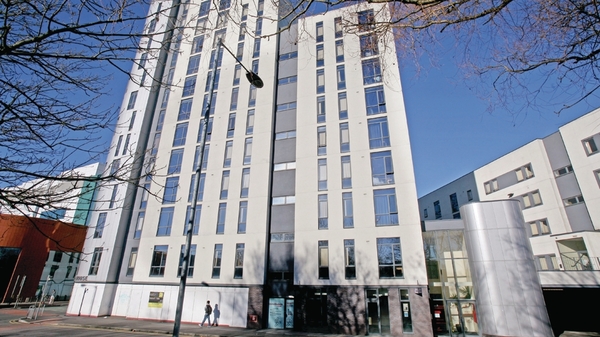You are viewing 1 of your 1 free articles

Steve Douglas is chief executive of St Mungo’s
How the role of board members has changed over the past nine years
As Steve Douglas stands down as vice-chair of Optivo, he reflects on what has changed in the sector since he joined the board in 2009
This week I’m stepping down from the board of Optivo (including Amicus Horizon, one of its legacy organisations), as its vice chair after nine years. It’s been great and it’s a great organisation.
But it’s a very different world and environment from when I joined in 2009. And the expectations on me now as a board member are so very different from those I faced almost a decade ago.
The role of the sector has increased significantly. Housing associations managed 2.5 million homes in 2009/10.
Today they manage 2.76 million homes. Last year they completed more than 41,000 homes. The gross book value is almost £140bn, and turnover last year was £20bn compared to £13.8bn a little over five years ago.
Associations are major regeneration partners, delivering more supported housing and care services as public subsidy and investment reduces, and to an ever-wider range of people, tenants, leaseholders and customers.
I’ve given a lot to Optivo in the past nine years. Probably 70 board meetings including board away days, leading on the merger with Viridian, and then chairing the integration committee for the last year or so. I’ve learnt a lot as well.
The pressure on boards has never been greater, and the focus on skills and understanding of the business never been more intense.
Under my watch at the then-Housing Corporation, in 2008 we put Amicus Horizon into supervision. It was a nice board, with nice people, both from in and outside the sector – but failing to demonstrate adequate control, scrutiny or challenge.
Five years on and the failings at Cosmopolitan painted a similar picture.
Some very experienced board members, both from in and out of sector, missing the importance of genuine, constructive but searching challenges. If you read the excellent coverage of the lessons from the Cosmopolitan case by Inside Housing in November 2013, they are still very relevant now.
The report mentions “acute liquidity problems”, failing to understand key risks within the business, leaving “potentially huge liabilities on the group’s balance sheet” and that recommendations from advisors were not acted upon.
“What I knew in 2008 is very different from what I need to know now.”
There were other takeaways as well; that size doesn’t matter and poor decisions can be made by small and large associations alike.
We wait to hear the lessons from First Priority, which is facing difficulties at the current time, but certainly the board will be asking, ‘What did we miss? How did we get here?’
What I knew in 2008, as a practitioner, is very different from what I know I need to know now as a board member, to offer the right level of support and challenge. Staying on top of current issues and risks is essential, and just relying on officers isn’t good enough.
Just because I know my day job inside out doesn’t mean that I know the business of the housing association. But it’s important that I do.
That does not mean getting operational. It does mean understanding the risks, the pressure points, the decision-making processes and the line of sight to delivery.
The best boards are comfortable about not assuming that they know all the answers, but know the right questions to ask.
I’ve seen governments come and go, and housing ministers even more frequently.
Since 2008, we’ve had five secretaries of state and 10 housing ministers; four in the past three years alone. All with different views on the sector and what it should be doing.
“The best boards are comfortable about not assuming that they know all the answers, but know the right questions to ask.”
Boards have to be long-term stewards of their organisation’s core purpose, and though always very mindful of current government policy and wherever possible working with the grain, they must always test decision-making against the association’s fundamental objectives and longer-term vision and financial viability.
The bar on accountability has been raised in the past decade. With greater levels of investment in the sector has come greater scrutiny.
The regulator has helped raise the bar on governance and viability, with a much tougher and more intensive scrutiny and assurance process through its in-depth assessments (IDA), which have clearly developed in sophistication as a result of learning from Cosmopolitan, from lessons in other countries such as the challenges with Vestia in the Netherlands in 2014 and from having undertaken more than 150 IDAs to date.
Lenders continue to draw comfort from the quality of sector regulation.
However, deregulation means the onus is on boards to be up to the task also.
This is particularly the case with consumer regulation.
The regulator’s remit on consumer accountability, which had a high point in 2008/09 with the creation of the Tenant Services Authority, has now been left to associations, with the regulator having a backstop role.
It is clear though that whatever comes out of the lessons from the Grenfell Tower fire tragedy, associations are already rethinking how they can truly demonstrate their accountability at a local level. Optivo is well-regarded for how it engages with residents.
“In 2018, the opportunities and reputational risks facing the sector are greater than they have ever been.”
They’ve worked hard at it. But there are different models that work equally well. The importance for all is in seeking and taking customer input and feedback seriously.
For me, today, in 2018, the opportunities and reputational risks facing the sector are greater than they have ever been.
The stakes are higher than they were in 2009. A fundamental debate about the purpose of social housing and, de facto, the purpose of housing associations is live.
Now more than ever boards have a greater responsibility to ensure we protect the viability, reputation and core values of our organisation and our sector.
It’s a different and more complex set of expectations for our governance, but our fundamental purpose is arguably still the same: to support communities, improve lives, build affordable homes.
So much has changed, and yet so little.
Steve Douglas, co-chief executive, Altair












